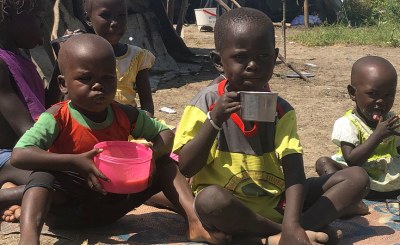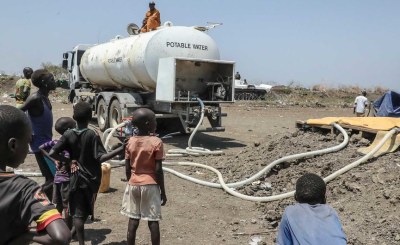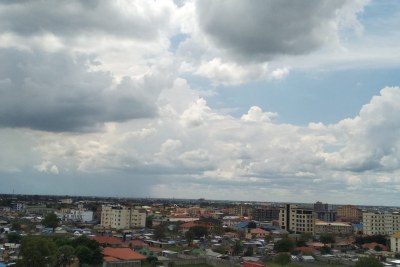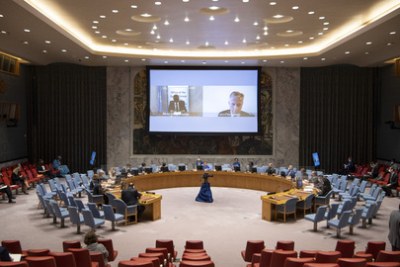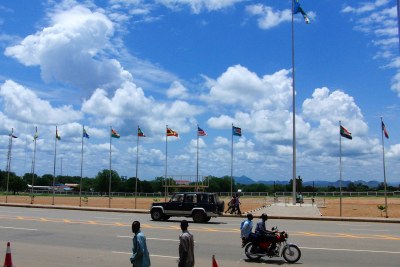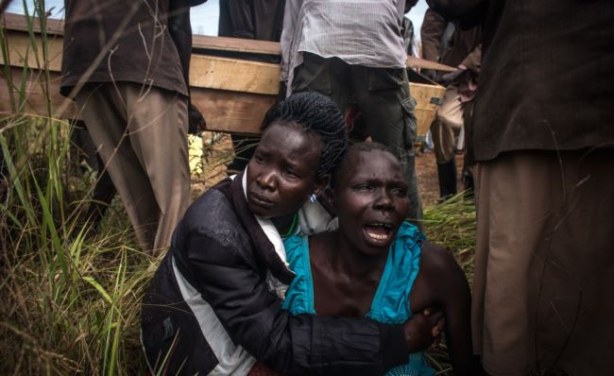-
South Sudan: South Sudan's Other (More Hopeful) Peace Process
African Arguments, 14 June 2021
In a country where people are so often seen as passive observers to events, the National Dialogue put ordinary citizens in control of their own destiny. Read more »
-
South Sudan: 18 Killed in Inter-Communal Clashes Despite Police Measures
VOA, 15 June 2021
When police in South Sudan's Lakes state heard tensions were rising between two local communities, they deployed forces along area roads and villages in an effort to prevent… Read more »
-
South Sudan: The Country Still Food Insecure Despite Increased Food Production - UN Agencies
East African, 4 June 2021
A new Crop and Food Security Assessment Mission released by two UN food agencies in South Sudan says that despite the seven percent increase in local food production last year,… Read more »
-
Rwanda: Police Boss Munyuza Visits Peacekeepers in South Sudan
New Times, 8 June 2021
The Inspector General of Police (IGP) Dan Munyuza, who is in South Sudan on an official visit, on Tuesday, June 8, visited Rwanda Formed Police Unit (FPU) contingents conducting… Read more »
-
South Sudan: Govt Blocks Peacekeepers From Volatile Areas - UN Mission Chief
VOA, 14 June 2021
The new chief of the United Nations Mission in South Sudan (UNMISS) says U.N. peacekeepers are being blocked from accessing some sensitive areas, despite an agreement by South… Read more »
South Sudan's National Dialogue Puts Ordinary Citizens in Control
The idea of a National Dialogue was first mooted in December 2016 when South Sudan was arguably at its lowest point. Three years into the war, fighting engulfed the entire country again and the UN was warning of a potential genocide and impending famine. The 2015 peace agreement was mostly defunct by this point, though it continued to be endorsed by neighbouring governments, the so-called Troika consisting of the U.S, UK and Norway, and also received support from the European Union, African Union and the UN.
It was in this context that President Salva Kiir announced the intention to launch a National Dialogue to "save the country from disintegration and usher in a new era of peace, stability and prosperity". The initiative was to have three stages. The first would be grassroots consultations. Next would follow regional conferences. And this would all culminate in a national conference.
While the regional mediation focused on power sharing and transitional security arrangements, participants in the National Dialogue offered more grounded views of the conflict. Groups in western Bahr-el-Ghazal, for example, raised concerns with administrative divisions, social unrest and the killing of peaceful demonstrators shortly after independence, that they cited as an ongoing source of tension in the area. Participants in Upper Nile discussed the role that disputes over land and the drawing of administrative boundaries played in formenting violence between Padang Dinka and Shilluk communities. These were the sorts of issues the wider peace talks had neither made space to examine, nor promised to address writes David Deng for African Arguments.
InFocus
-
President Salva Kiir has made a minor shuffle in the coalition government and dropped the Lakes State Governor and Reweng Administrative Area Chief Overseer. The sacked governor ... Read more »
-
South Sudan's unity government says the United Nations Security Council's decision to renew the arms embargo and targeted sanctions will jeopardise the progress of the 2018 ... Read more »
-
President Salva Kiir has reconstituted the National Legislative Assembly, a day after he dissolved the 400-member parliament in accordance with the revitalised peace agreement. ... Read more »
